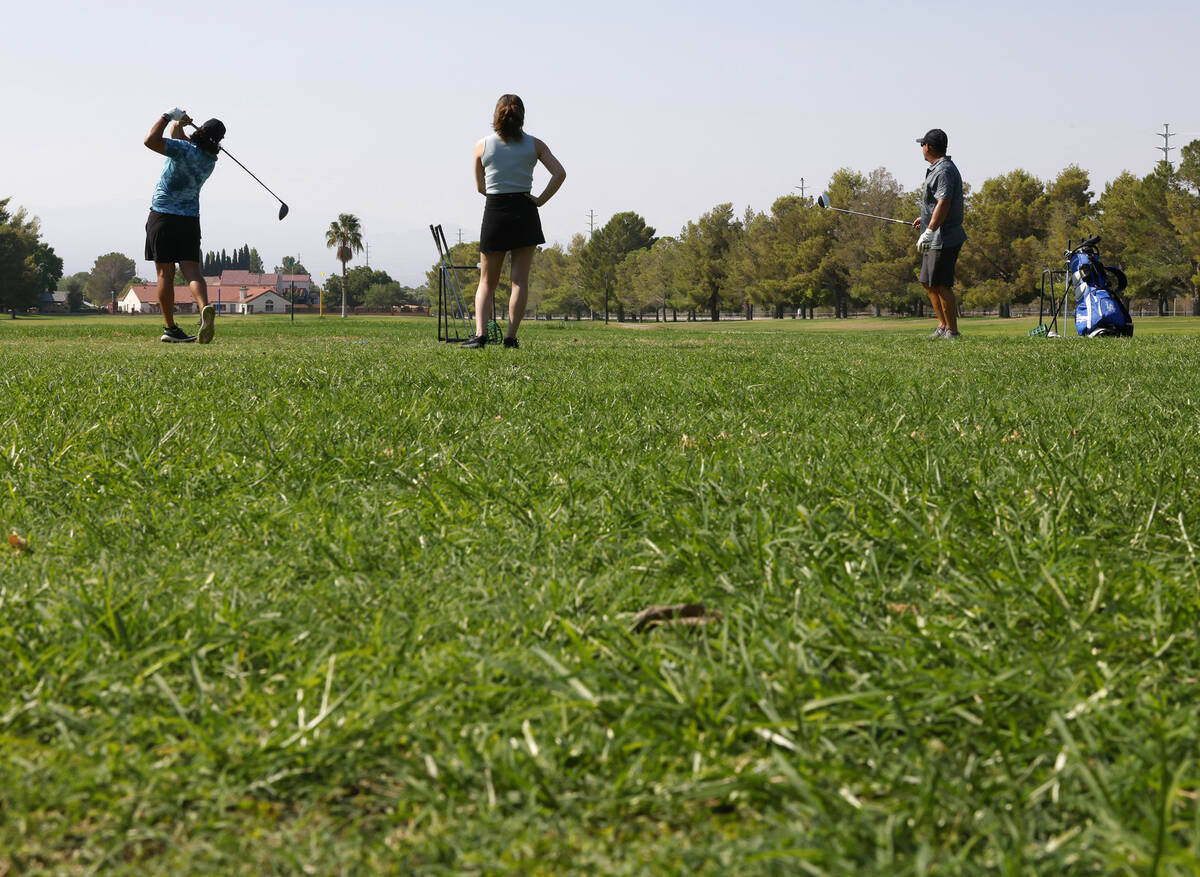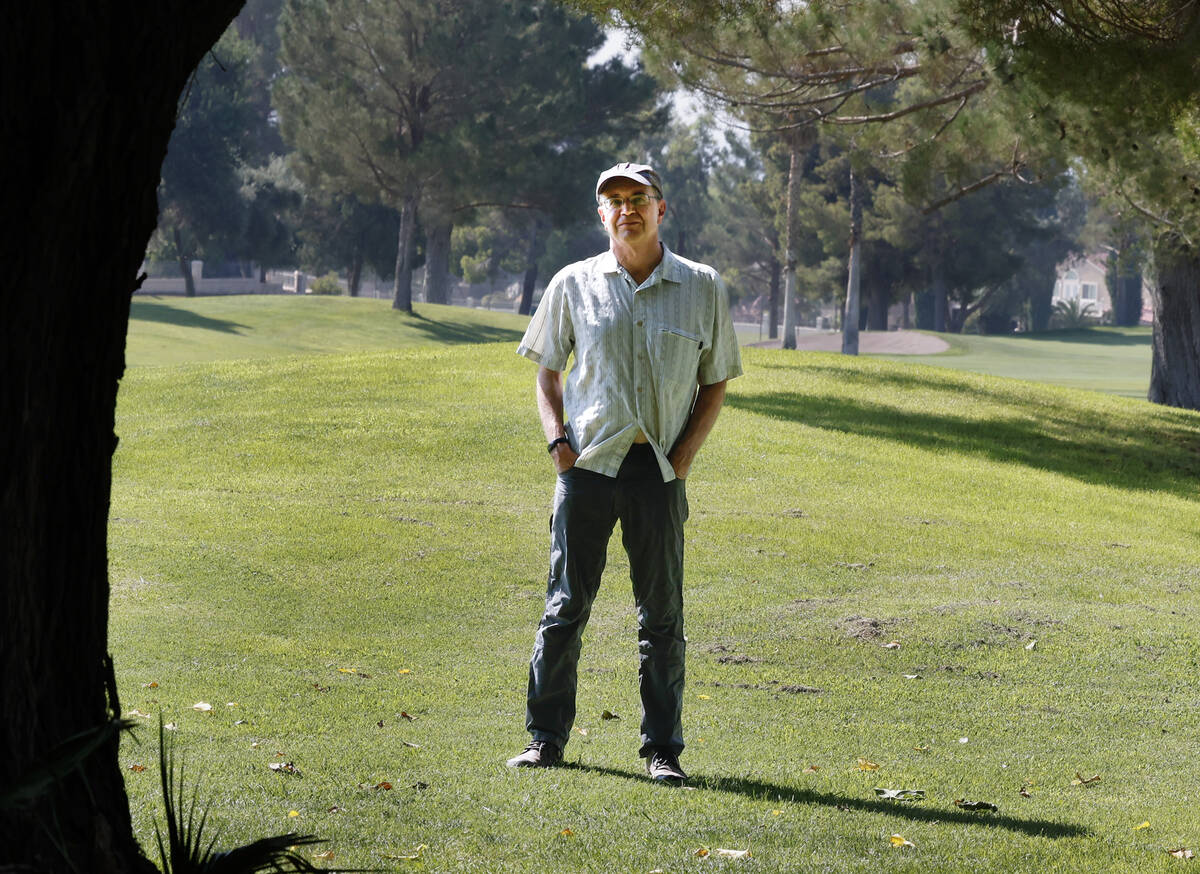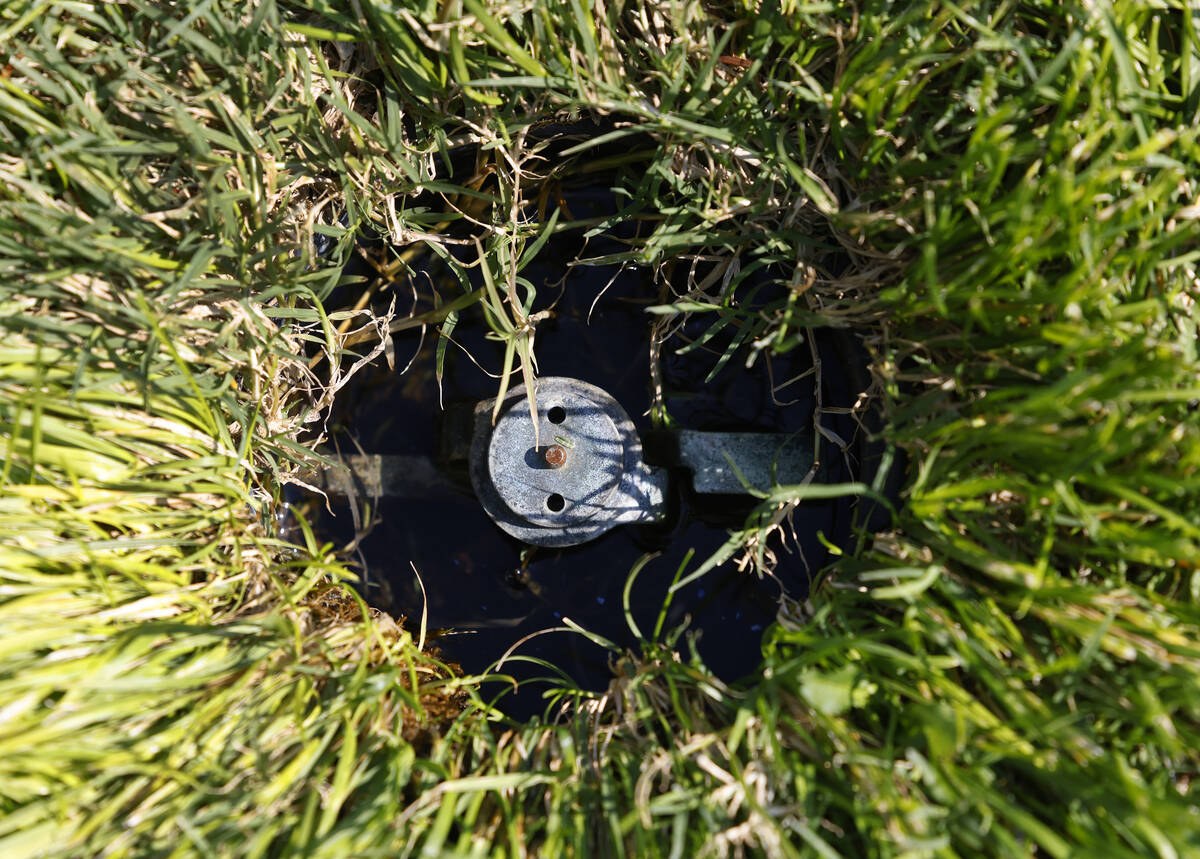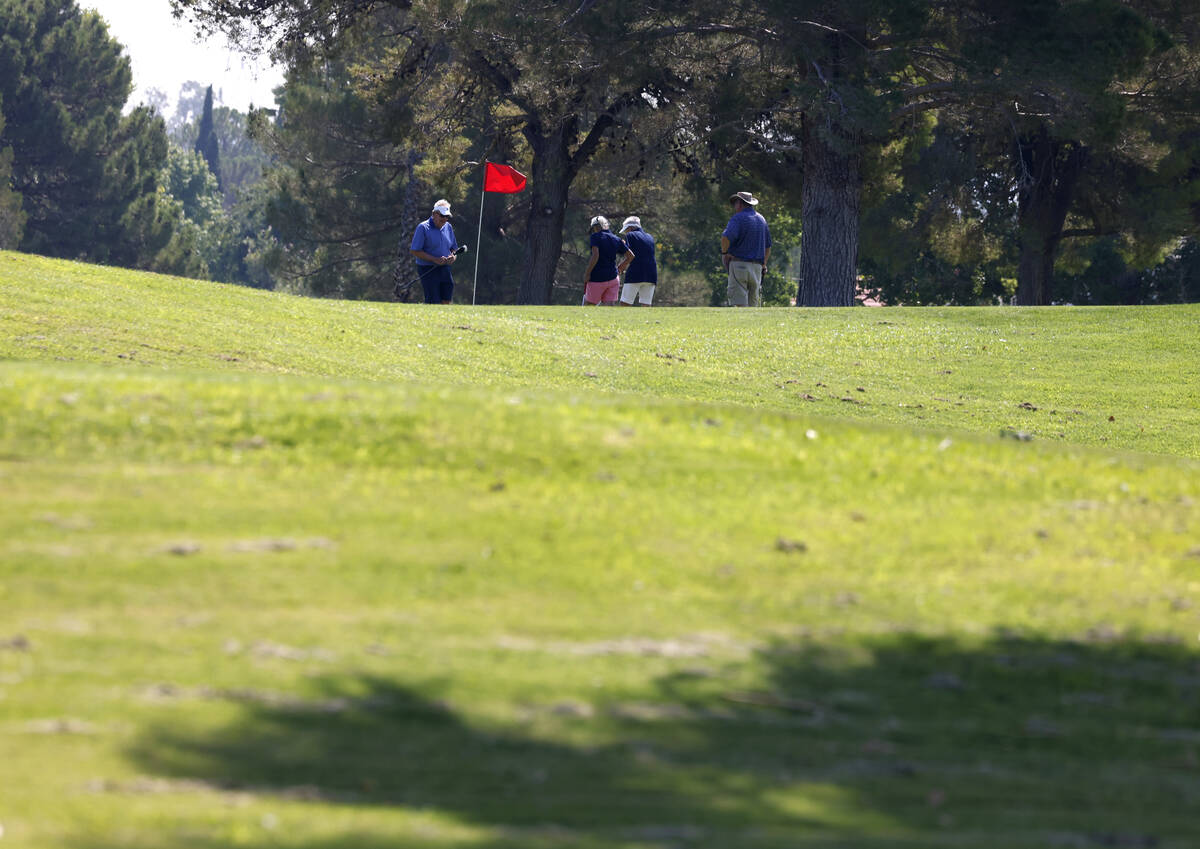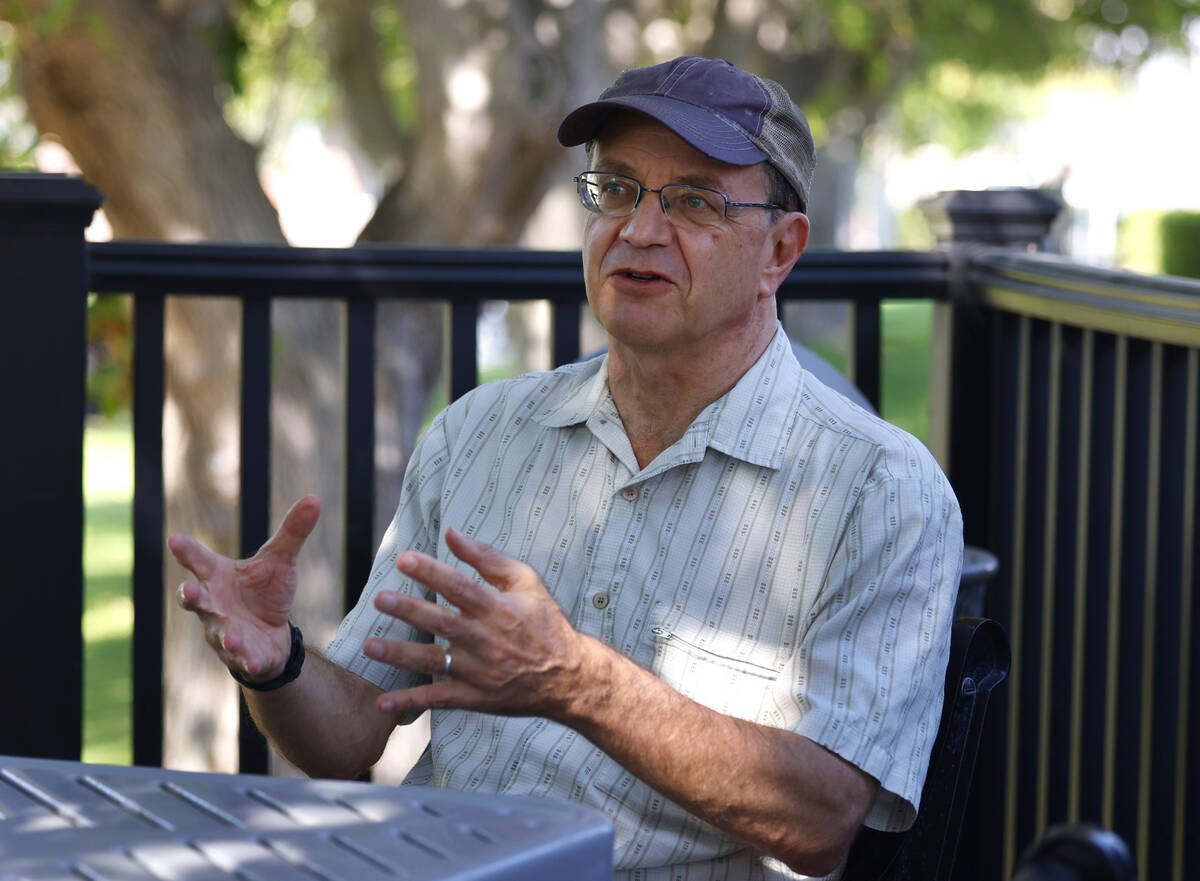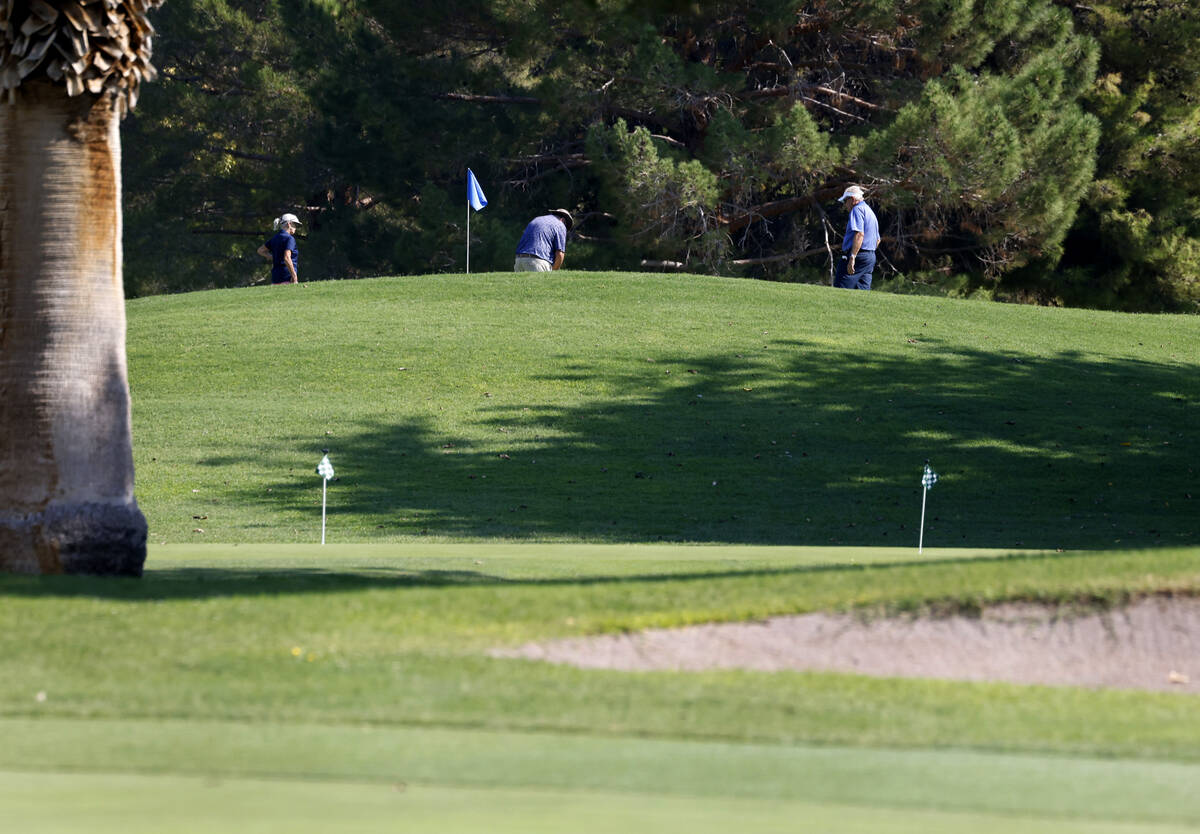Boulder City may fine itself for excess water use. Golfers may pick up the tab
Boulder City’s grand, green and government-owned golf course is an anomaly against the beige and brown expanse of the Mojave Desert. It’s also a water guzzler — something the city is trying to tackle head-on amid drought.
In a discussion some called puzzling, Boulder City council members floated the possibility of violating its own water conservation ordinance with its plan to update the golf course.
And that may come with a self-imposed fine that golfers would pick up, because city officials are unsure if the plan to fix the golf course’s leaky sprinkler system and tear out some grass will be enough to meet the aggressive water-saving goals it adopted in August 2022, based on recommendations from the Southern Nevada Water Authority.
As it stands now, the golf course is expected to use 642 acre-feet, falling short of the requirement that it can only use 532, said Jim Keane, a Boulder City engineer who is working on the project. An acre-foot of water is roughly enough to sustain two single-family households for a year.
“We may save more; we may save a little less,” Keane said. “That’s just the best estimate we have right now.
Golfers would have to pay about $1 extra to play on the course if water goals aren’t met. While council members seemed to support golfers paying the fine that the city could end up imposing on itself, Councilman Steve Walton said that’s not a certain solution.
However, the city likely won’t waver on the water ordinance it adopted two years ago, he said.
“This is our first stab right at reducing the golf course’s use,” said Walton, who represents Boulder City on the regional water authority board. “We’ll have to actually use it for a season to see where the water usage is and what the next steps will be.”
Residents consulted, but still divided
Boulder City, a small municipality on the Colorado River, is home to Hoover Dam and Lake Mead, Southern Nevada’s main water source.
Irrigating grass remains the top water use across Southern Nevada. While Boulder City is notably greener than the Las Vegas Valley, it has made some strides in reducing its footprint.
The golf course transformation has undergone extensive planning. A city spokeswoman said officials have held several meetings to gather input from golfers, City Council members and those whose homes are nearest to the course.
To some, though, the council’s lax approach is not enough as Nevada and the Southwest reconcile with prolonged drought.
George Rhee, a longtime resident who founded the Boulder City Climate Action Group, said he was shocked to learn of the council’s nonchalant attitude when it came to following the goals set by the ordinance.
There have been some wins when it comes to water conservation, he said, such as the city’s separate growth-limiting ordinance that allows only 120 homes to be built every year.
But to blatantly disregard the council’s own law would set a bad precedent for cities across the Southwest, Rhee said.
“I see it as a fracture line in the system that’s being stressed by the lack of water,” Rhee said. “They are breaking the law, and it’s quite unusual.”
Lake Mead’s hometown to catch up on water conservation
Boulder City remains the only municipality belonging to the Southern Nevada Water Authority that does not recycle nearly all of the water used indoors back to Lake Mead, authority spokesman Bronson Mack said.
Throughout cities in Southern Nevada, ordinances exist to prevent any new golf courses from using water from the Colorado River. In August 2022, cities agreed to lower the amount of water a golf course can use per year, from 6.3 acre-feet to 4 acre-feet per acre — something Boulder City implemented, as well.
Still, cities are faced with hard decisions when weighing the economic effects of removing grass in popular recreational areas, Mack said.
“The financial penalty for exceeding the golf course water budget becomes part of that calculus in that business decision,” he said.
The water authority is in the process of studying potential solutions to Boulder City’s waste of indoor water, which Mack said will wrap up next summer. The solutions on the table include using treated water to irrigate lawns, injecting water into wells at Lake Mead, and discharging the water directly from Boulder City to Lake Mead.
Walton, the councilman, said the city has reduced its overall water use 23 percent in the past two years. Savings will grow even more once the study is complete.
“Boulder City is leading the way in water conservation by percentage,” he said. “Our folks realize that we are in a drastic drought and are absolutely in favor of conserving water from the Colorado River.”
Contact Alan Halaly at ahalaly@reviewjournal.com. Follow @AlanHalaly on X.



